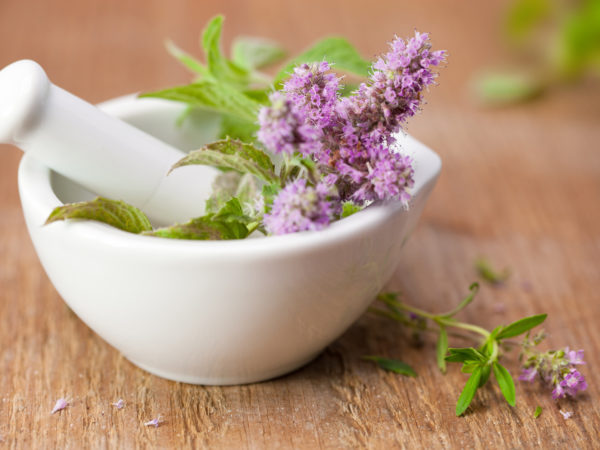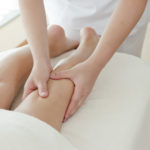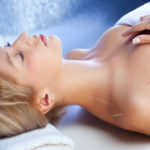Herbal Medicine And Medicinal Herbs

What Is Herbal Medicine?
Herbal medicine, also known as herbalism or botanical medicine, is a medical system based on the use of plants or plant extracts that may be eaten or applied to the skin. Since ancient times, herbal medicine has been used by many different cultures throughout the world to treat illness and to assist bodily functions. While herbal medicine is not a licensed profession in the United States, herbal remedies in the form of extracts, tinctures, capsules and tablets as well as teas may be recommended by healthcare practitioners of many different disciplines as a practical way to address a wide variety of medical conditions.
Herbal medicine blurs the line between foods and medicines – a line that, in many cultures, was never drawn in the first place. Using herbs and spices that have disease-preventive effect in foods is one of the best ways to take advantage of their healing power. For example, it appears that the daily use of the spice turmeric in curry dishes is one reason elderly people in India have one of the lowest rates of Alzheimer’s disease in the world.
What Conditions Is Herbal Medicine Used For?
Herbal medicine has been used to treat or alleviate virtually every possible medical condition. Some of the most popular herbal remedies and the conditions for which they are used include:
- aloe used topically for minor burns, sunburns, skin irritation or inflammation
- arnica used topically for bruises, sprains, sore muscles and joints
- chamomile tea ingested for upset stomach, heartburn, indigestion and colic
- comfrey, in a topical poultice only, for bedsores, diabetic ulcers, certain spider bites and staph infections contracted on tropical beaches
- dong quai for women and ginseng for men and women, ingested to improve general health and stamina – in this application, these are known as tonics. Other tonics include eleuthero and rhodiola.
- echinacea ingested for colds, flu, sore throat
- garlic ingested to possibly reduce cholesterol and blood pressure, treat fungal infections and colds
- ginger ingested for nausea and motion sickness and as an anti-inflammatory
- mullein ingested for chest congestion and dry, bronchial coughs
- passionflower ingested for non-sedating relaxation
- peppermint tea ingested for indigestion, nausea and other digestive problems
- peppermint oil (in enteric-coated capsules) ingested for irritable bowel syndrome and other chronic intestinal ailments
- tea tree oil applied topically for fungal infections such as athlete’s foot and fungal infections of the toenails and fingernails
- turmeric ingested to combat inflammation and protect against cancer and Alzheimer’s disease
- valerian ingested for sleeping problems.
This is only a brief overview of some of the many safe and effective herbal remedies.
What Should One Expect On A Visit To A Practitioner Of Herbal Medicine?
What to expect depends on the type of practitioner you’re consulting. A medical doctor, osteopathic doctor, or naturopath may recommend an herbal remedy in the course of an office visit if you have made a specific complaint. A practitioner of traditional Chinese medicine or ayurvedic medicine may recommend an herbal remedy in the course of a consultation for a specific health problem or to address whole health from a holistic perspective.
According to the American Herbalist Guild, herbalists can practice either as primary health care providers or adjunctive health care consultants. The Guild explains that most visits to an herbalist begin with a consultation about your past and current health history, your dietary and lifestyle practices, or other factors related to your health issue. Then, according to the Guild “the herbalist, with your involvement, should develop an integrated herbal program that addresses your specific health needs and concerns.”
Are There Any Side Effects Or Conditions Where Herbal Medicine Should Be Avoided?
Yes. When taking medication, you should investigate possible interactions with an herbal remedy you may be considering. Be careful about mixing herbs and drugs that have similar actions. For example, it may not be a good idea to mix anticoagulant drugs with ginkgo, a natural blood thinner; the herb valerian, a sedative, probably shouldn’t be mixed with prescription sleeping pills. Similarly, avoid mixing herbs and drugs that have opposite actions. Other agents may alter the way a medication is handled by the body. For example, St. John’s wort, a natural remedy for depression, may reduce the effectiveness of some drugs by causing them to be metabolized too quickly. When in doubt, check with your pharmacist about herb/drug interactions. In addition, herbs that can thin blood, such as dong quai, feverfew, supplemental garlic, and ginger could cause problems if taken before surgery as could herbs such as ginseng and licorice root that affect heart rate and blood pressure. Sedative herbs like kava and valerian may increase the effects of anesthesia. It is best to stop taking any of these herbs at least 10-14 days before surgery, and be sure to tell your physician that you’ve been taking them.
- Pregnancy: It is best to avoid taking any herbs during pregnancy, especially the first trimester, unless you’re under the care of a knowledgeable practitioner. Exceptions: it’s considered safe to take up to 1,000 mg of ginger in capsule or candied forms for morning sickness; short-term use of echinacea also seems safe for pregnant women who develop colds or flu.
- Nursing: Apart from herbs that can stimulate breast-milk production (fenugreek, blessed thistle, and alfalfa), women who are breastfeeding should avoid most medicinal herbs for the first four to six months of a baby’s life.
- Children: Herbal remedies that are safe for adults may not be safe for children. For guidance, see Healthy Child, Whole Child, by Stuart Ditchek, M.D. and Russell Greenfield, M.D (HarperResource, 2009).
Is There A Governing Body That Oversees Or Credentials Practitioners In Herbal Medicine?
No. The practice of herbal medicine is not a licensed profession in the United States. Because herbs are sold in the U.S. as dietary supplements available to anyone, consumers should educate themselves before buying. Good resources include the American Botanical Council, the Herb Research Foundation and HerbMed.
How Does One Get In Touch With A Practitioner Of Herbal Medicine?
Anyone can claim to be an herbalist, so be sure to look for someone with extensive training. Practitioners of both Traditional Chinese Medicine and ayurvedic medicine rely on herbs for treatment. You may be able to find a knowledgeable practitioner through the American Herbalist Guild. Keep in mind that professional herbalists who advise clients on the use of medicinal herbs are typically not licensed to diagnose or treat disease.
Herbal medicine is also a mainstay of naturopathic physicians (NDs or NMDs) who use natural approaches to promote wellness and treat disease. Naturopaths typically cannot prescribe pharmaceuticals, and not all practitioners have attended a four-year naturopathic medical school, so prospective patients should ask about training. You can locate a practitioner via the website of the American Association of Naturopathic Physicians. While some MDs and DOs (osteopathic physicians) are learning about herbs and other natural remedies, it is unlikely that herbal medicine was included in their formal training.
Are There Other Therapies That Might Work Well In Conjunction With Herbal Medicine?
Herbal medicine is considered most effective when used as part of a program of natural treatment that includes dietary modification, proper exercise, stress reduction, and mobilization of mental resources directed toward healing.
What Is Dr. Weil’s View Of Herbal Medicine?
In Dr. Weil’s view, the principle advantage of herbs is their complexity. Medicinal plants contain a wide array of chemical compounds, which gives them versatile therapeutic powers. For example, for Andean Indians, whole coca leaf is the number one medicinal plant. They use it to treat gastrointestinal disturbances; specifically, for both diarrhea and constipation. Its ability to treat two opposite disease states springs from the fact that coca contains 14 bioactive alkaloids, some of which stimulate the gut, while others inhibit gut activity. When the whole mixture enters the body, receptors in the gut’s tissues bind to the alkaloids that are needed for the body to return it to equilibrium.
Throughout his career, Dr. Weil has recommended herbal remedies far more often than he has prescribed prescription drugs and has said that he hasn’t seen a serious adverse reaction to any of the herbal remedies he has recommended. However, because of the many unsubstantiated claims made for herbal remedies, and because the market is not well regulated, he recommends that consumers follow these guidelines:
- Don’t buy whole dried herbs from bins or jars in stores. These loose herbs are probably worthless because dried plants deteriorate upon exposure to air, light and moisture and the more finely chopped the plant parts are, the faster they lose their desirable qualities.
- Avoid encapsulated powdered herbs because when plants are ground into powders, they’re exposed to oxidation which causes them to deteriorate.
- Buy reputable brands that advertise the purity of their ingredients.
- The best herbal medicines are those you grow yourself. Maintaining a personal herb garden can ensure freshness and quality.
- Look for herbal preparations that have been “wildcrafted” (ethically harvested from wild stands) or cultivated organically.
- Buy Chinese herbal products only from reputable sources and avoid those that do not list ingredients. (Some herbs from China have been contaminated with toxic metals.)









